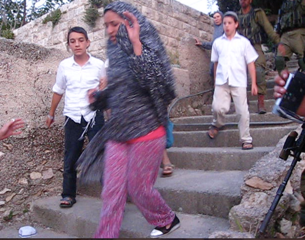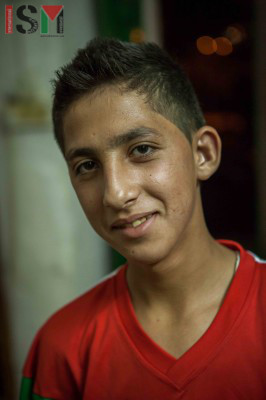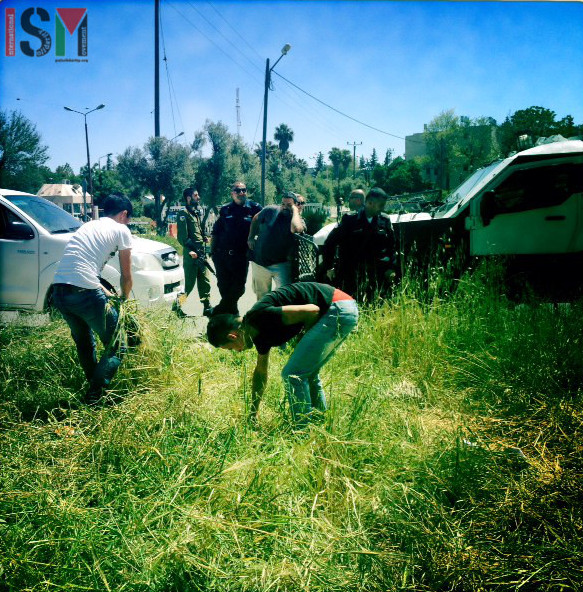Tag: Settler violence
-
Palestinian woman and her children attacked by settlers
9th May 2015 | International Solidarity Movement, Al Khalil Team | Al Khalil, Occupied Palestine Yesterday evening in Al Khalil (Hebron), a Palestinian woman and her two small children were attacked by settlers from the illegal settlement as they were on their way to the shops. Marwat Abu Remele lives in Tel Rumeida, an area in Al Khalil under Israeli…
-
Two Palestinian youths violently arrested in Al-Khalil (Hebron)
04th May 2015 | International Solidarity Movement, Khalil Team | Hebron, Occupied Palestine In the early evening of Friday the 1st of May, Israeli forces arrested two Palestinian youths in the Tel Rumeida neighborhood of occupied Al-Khalil (Hebron). Nizar Salhab, accused of attacking a settler was released the same evening, Awne Imad Abu Shamsiyeh was…
-
Harvesting While Harassed- Jabari family face military and settlers to gather their crops
3rd May 2015 | International Solidarity Movement, Khalil Team | Hebron, Occupied Palestine The Jabari family owns land sandwiched in between the illegal settlements of Kiryat Arba and Givat Ha’vot. In 2001, settlers illegally took over part of the land to erect a synagogue-tent on the Jaabari-family land. All settlements are illegal under international law,…



